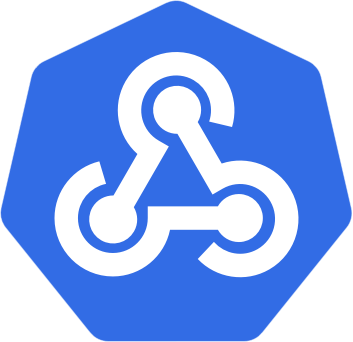Kubewebhook is a small Go framework to create external admission webhooks for Kubernetes.
With Kubewebhook you can make validating and mutating webhooks very fast and focusing mainly on the domain logic of the webhook itself.
- Ready for mutating and validating webhook kinds (compatible with CRDs).
- Easy and testable API.
- Simple, extensible and flexible.
- Multiple webhooks on the same server.
- Webhook metrics (RED) for Prometheus with Grafana dashboard included.
- Webhook tracing with Opentracing.
- Type specific (static) webhooks and multitype (dynamic) webhooks.
Kubewebhook has been used in production for several months, and the results have been good.
Here is a simple example of mutating webhook that will add mutated=true and mutator=pod-annotate annotations.
func main() {
logger := &log.Std{Debug: true}
cfg := initFlags()
// Mutator.
mt := mutatingwh.MutatorFunc(func(_ context.Context, obj metav1.Object) (bool, error) {
pod, ok := obj.(*corev1.Pod)
if !ok {
return false, nil
}
if pod.Annotations == nil {
pod.Annotations = make(map[string]string)
}
pod.Annotations["mutated"] = "true"
pod.Annotations["mutator"] = "pod-annotate"
return false, nil
})
mcfg := mutatingwh.WebhookConfig{
Name: "podAnnotate",
Obj: &corev1.Pod{},
}
wh, err := mutatingwh.NewWebhook(mcfg, mt, nil, nil, logger)
if err != nil {
fmt.Fprintf(os.Stderr, "error creating webhook: %s", err)
os.Exit(1)
}
// Get the handler for our webhook.
whHandler := whhttp.HandlerFor(wh)
logger.Infof("Listening on :8080")
err = http.ListenAndServeTLS(":8080", cfg.certFile, cfg.keyFile, whHandler)
if err != nil {
fmt.Fprintf(os.Stderr, "error serving webhook: %s", err)
os.Exit(1)
}
}You can get more examples in here
This repository is a production ready webhook app: https://github.com/slok/k8s-webhook-example
It shows, different webhook use cases, app structure, testing domain logic, kubewebhook use case, how to deploy...
We have 2 kinds of webhooks:
- Static: Common one, is a single resource type webhook.
- Use
mutating.WebhookConfig.Objto configure. - Use
validating.WebhookConfig.Objto configure.
- Use
- Dynamic: Used when the same webhook act on multiple types, unknown types and/or is used for generic stuff (e.g labels).
- To use this kind of webhook, don't set the type on the configuration or set to
nil. - If a request for an unknown type is not known by the webhook libraries, it will fallback to
runtime.Unstructuredobject type. - Very useful to manipulate multiple resources on the same webhook (e.g
Deployments,Statfulsets). - CRDs are unknown types so they will fallback to
runtime.Unstructured`. - If using CRDs, better use
Staticwebhooks. - Very useful to maniputale any
metadatabased validation or mutations (e.gLabels, annotations...)
- To use this kind of webhook, don't set the type on the configuration or set to
Depending on your Kubernetes cluster version, you should select the Kubewebhook version.
This Matrix ensures that Kubernetes libs are used with the described versions and the integration tests have been tested against this Kubernetes cluster versions, this doesn't mean that other Kubewebhook versions different to the matched ones to Kubernetes versions don't work (e.g k8s v1.15 with Kubewebhook v0.3). You can try it and check if they work for you.
| k8s version | Kubewebhook version | Supported admission reviews | Support dynamic webhooks |
|---|---|---|---|
| 1.18 | v0.10 | v1beta1 | ✔ |
| 1.18 | v0.9 | v1beta1 | ✖ |
| 1.17 | v0.8 | v1beta1 | ✖ |
| 1.16 | v0.7 | v1beta1 | ✖ |
| 1.15 | v0.6 | v1beta1 | ✖ |
| 1.14 | v0.5 | v1beta1 | ✖ |
| 1.13 | v0.4 | v1beta1 | ✖ |
| 1.12 | v0.3 | v1beta1 | ✖ |
| 1.11 | v0.2 | v1beta1 | ✖ |
| 1.10 | v0.2 | v1beta1 | ✖ |
Tools required
- mkcert (optional if you want to create new certificates).
- kind (option1, to run the cluster).
- k3s (option2, to run the cluster)
- ssh (to expose our webhook to the internet).
Certificates are ready to be used on [/test/integration/certs]. This certificates are valid for ngrok tcp tunnels so, they should be valid for our exposed webhooks using ngrok.
If you want to create new certificates execute this:
make create-integration-test-certsThe integration tests are on [/tests/integration], there are the certificates valid for ngrok where the tunnel will be exposing the webhooks.
Go integration tests require this env vars:
TEST_WEBHOOK_URL: The url where the apiserver should make the webhook requests.TEST_LISTEN_PORT: The port where our webhook will be listening the requests.
There are 2 ways of bootstrapping the integration tests, one using kind and another using k3s.
To run the integration tests do:
make integration-testThis it will bootstrap a cluster with kind by default and a k3s cluster if K3S=true env var is set. A ssh tunnel in a random address, and finally use the precreated certificates (see previous step), after this will execute the tests, and do it's best effort to tear down the clusters (on k3s could be problems, so have a check on k3s processes).
To develop integration test is handy to run a k3s cluster and a serveo tunnel, then check out [/tests/integration/helper/config] and use this development settings on the integration tests.
